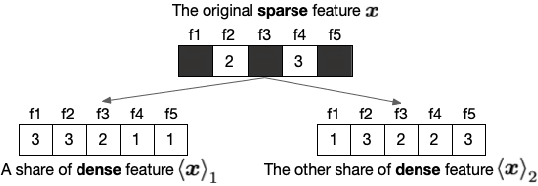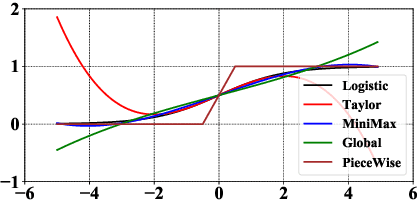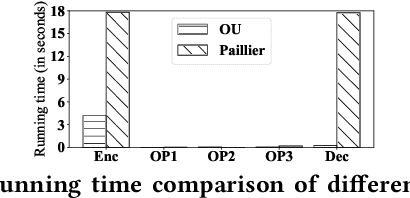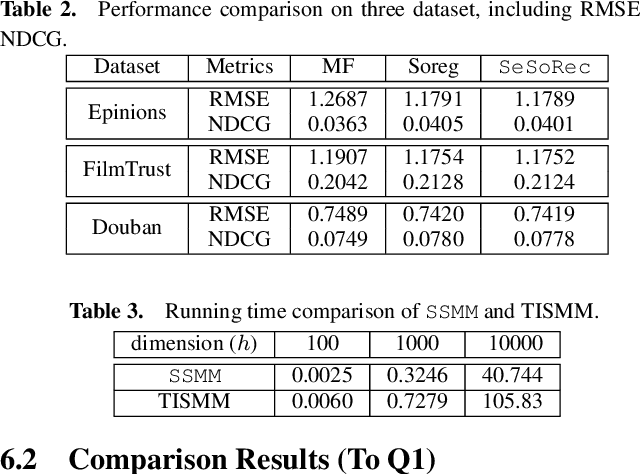Cheng Hong
FIT: Defying Catastrophic Forgetting in Continual LLM Unlearning
Jan 29, 2026Abstract:Large language models (LLMs) demonstrate impressive capabilities across diverse tasks but raise concerns about privacy, copyright, and harmful materials. Existing LLM unlearning methods rarely consider the continual and high-volume nature of real-world deletion requests, which can cause utility degradation and catastrophic forgetting as requests accumulate. To address this challenge, we introduce \fit, a framework for continual unlearning that handles large numbers of deletion requests while maintaining robustness against both catastrophic forgetting and post-unlearning recovery. \fit mitigates degradation through rigorous data \underline{F}iltering, \underline{I}mportance-aware updates, and \underline{T}argeted layer attribution, enabling stable performance across long sequences of unlearning operations and achieving a favorable balance between forgetting effectiveness and utility retention. To support realistic evaluation, we present \textbf{PCH}, a benchmark covering \textbf{P}ersonal information, \textbf{C}opyright, and \textbf{H}armful content in sequential deletion scenarios, along with two symmetric metrics, Forget Degree (F.D.) and Retain Utility (R.U.), which jointly assess forgetting quality and utility preservation. Extensive experiments on four open-source LLMs with hundreds of deletion requests show that \fit achieves the strongest trade-off between F.D. and R.U., surpasses existing methods on MMLU, CommonsenseQA, and GSM8K, and remains resistant against both relearning and quantization recovery attacks.
EnchTable: Unified Safety Alignment Transfer in Fine-tuned Large Language Models
Nov 13, 2025Abstract:Many machine learning models are fine-tuned from large language models (LLMs) to achieve high performance in specialized domains like code generation, biomedical analysis, and mathematical problem solving. However, this fine-tuning process often introduces a critical vulnerability: the systematic degradation of safety alignment, undermining ethical guidelines and increasing the risk of harmful outputs. Addressing this challenge, we introduce EnchTable, a novel framework designed to transfer and maintain safety alignment in downstream LLMs without requiring extensive retraining. EnchTable leverages a Neural Tangent Kernel (NTK)-based safety vector distillation method to decouple safety constraints from task-specific reasoning, ensuring compatibility across diverse model architectures and sizes. Additionally, our interference-aware merging technique effectively balances safety and utility, minimizing performance compromises across various task domains. We implemented a fully functional prototype of EnchTable on three different task domains and three distinct LLM architectures, and evaluated its performance through extensive experiments on eleven diverse datasets, assessing both utility and model safety. Our evaluations include LLMs from different vendors, demonstrating EnchTable's generalization capability. Furthermore, EnchTable exhibits robust resistance to static and dynamic jailbreaking attacks, outperforming vendor-released safety models in mitigating adversarial prompts. Comparative analyses with six parameter modification methods and two inference-time alignment baselines reveal that EnchTable achieves a significantly lower unsafe rate, higher utility score, and universal applicability across different task domains. Additionally, we validate EnchTable can be seamlessly integrated into various deployment pipelines without significant overhead.
GaussMarker: Robust Dual-Domain Watermark for Diffusion Models
Jun 13, 2025Abstract:As Diffusion Models (DM) generate increasingly realistic images, related issues such as copyright and misuse have become a growing concern. Watermarking is one of the promising solutions. Existing methods inject the watermark into the single-domain of initial Gaussian noise for generation, which suffers from unsatisfactory robustness. This paper presents the first dual-domain DM watermarking approach using a pipelined injector to consistently embed watermarks in both the spatial and frequency domains. To further boost robustness against certain image manipulations and advanced attacks, we introduce a model-independent learnable Gaussian Noise Restorer (GNR) to refine Gaussian noise extracted from manipulated images and enhance detection robustness by integrating the detection scores of both watermarks. GaussMarker efficiently achieves state-of-the-art performance under eight image distortions and four advanced attacks across three versions of Stable Diffusion with better recall and lower false positive rates, as preferred in real applications.
VideoMarkBench: Benchmarking Robustness of Video Watermarking
May 27, 2025Abstract:The rapid development of video generative models has led to a surge in highly realistic synthetic videos, raising ethical concerns related to disinformation and copyright infringement. Recently, video watermarking has been proposed as a mitigation strategy by embedding invisible marks into AI-generated videos to enable subsequent detection. However, the robustness of existing video watermarking methods against both common and adversarial perturbations remains underexplored. In this work, we introduce VideoMarkBench, the first systematic benchmark designed to evaluate the robustness of video watermarks under watermark removal and watermark forgery attacks. Our study encompasses a unified dataset generated by three state-of-the-art video generative models, across three video styles, incorporating four watermarking methods and seven aggregation strategies used during detection. We comprehensively evaluate 12 types of perturbations under white-box, black-box, and no-box threat models. Our findings reveal significant vulnerabilities in current watermarking approaches and highlight the urgent need for more robust solutions. Our code is available at https://github.com/zhengyuan-jiang/VideoMarkBench.
When Homomorphic Encryption Marries Secret Sharing: Secure Large-Scale Sparse Logistic Regression and Applications in Risk Control
Aug 20, 2020



Abstract:Logistic Regression (LR) is the most widely used machine learning model in industry due to its efficiency, robustness, and interpretability. Meanwhile, with the problem of data isolation and the requirement of high model performance, building secure and efficient LR model for multi-parties becomes a hot topic for both academia and industry. Existing works mainly employ either Homomorphic Encryption (HE) or Secret Sharing (SS) to build secure LR. HE based methods can deal with high-dimensional sparse features, but they may suffer potential security risk. In contrast, SS based methods have provable security but they have efficiency issue under high-dimensional sparse features. In this paper, we first present CAESAR, which combines HE and SS to build seCure lArge-scalE SpArse logistic Regression model and thus has the advantages of both efficiency and security. We then present the distributed implementation of CAESAR for scalability requirement. We finally deploy CAESAR into a risk control task and conduct comprehensive experiments to study the efficiency of CAESAR.
Secure Social Recommendation based on Secret Sharing
Mar 05, 2020


Abstract:Nowadays, privacy preserving machine learning has been drawing much attention in both industry and academy. Meanwhile, recommender systems have been extensively adopted by many commercial platforms (e.g. Amazon) and they are mainly built based on user-item interactions. Besides, social platforms (e.g. Facebook) have rich resources of user social information. It is well known that social information, which is rich on social platforms such as Facebook, are useful to recommender systems. It is anticipated to combine the social information with the user-item ratings to improve the overall recommendation performance. Most existing recommendation models are built based on the assumptions that the social information are available. However, different platforms are usually reluctant to (or cannot) share their data due to certain concerns. In this paper, we first propose a SEcure SOcial RECommendation (SeSoRec) framework which can (1) collaboratively mine knowledge from social platform to improve the recommendation performance of the rating platform, and (2) securely keep the raw data of both platforms. We then propose a Secret Sharing based Matrix Multiplication (SSMM) protocol to optimize SeSoRec and prove its correctness and security theoretically. By applying minibatch gradient descent, SeSoRec has linear time complexities in terms of both computation and communication. The comprehensive experimental results on three real-world datasets demonstrate the effectiveness of our proposed SeSoRec and SSMM.
 Add to Chrome
Add to Chrome Add to Firefox
Add to Firefox Add to Edge
Add to Edge